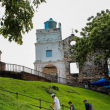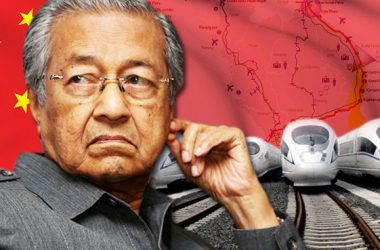10th July 2020 will be history as the day the administrative court of Turkey annulled the 1934 decree that turned the Hagia Sophia into a museum. This Hagia Sophia case has gained an international criticism by the Russian official, Russian Orthodox Church, United States, Greek, and their orthodox church who all have voiced out against the conversion of Hagia Sophia from the museum back into its previous form, the mosque.
Ayasofya Historical Background
To understand this complex issue, first, we must revisit the history of Hagia Sophia. Hagia Sophia’s history date back to the 4th century and has since rebuilt thrice. The Eastern Roman Emperor or the Byzantine Empire Justinian the Great erected the current Hagia Sophia as a Greek Orthodox Church. The cathedral was rebuilt in 532ad and the reconstruction was completed in 537ad. Its full name in Greek is “Naos tis Hagias tou Theou Sophias”, Shrine of the Holy Wisdom of God. Hagia Sophia in the ancient Eastern Roman Empire is a symbol of the Mother of God. The building, which is full of lights, is said to be the presence of Christ himself.

Then on 29 May 1453, Mehmed II or Fetih Sultan Mehmed thus decimating the Byzantine Empire conquered Constantinople. Mehmed then gradually converted Hagia Sophia into a mosque and in his first Friday prayer, his name was recited in the khutba as a sign of his legitimacy and the Ottoman’s. The conversion of the church is a sign of conquest. Mehmed II then gave a decree what is known as Fetih Hagia Sophia Foundation Charter,
“All the things I have explained and designated here have been set down in written form in the foundation charter in the manner appointed; the conditions may not be altered; the laws may not be amended; they may not be diverted from their original purpose; the appointed rules and principles may not be diminished; interference of any sort in the foundation is interdicted, like Allah’s other interdictions… May the curse of Allah, the angels and all human beings be upon anyone who changes even one of the conditions governing this foundation.” – Fetih Sultan Mehmed

Hagia Sophia became an imperial mosque for around 500 years before Mustafa Kemal Ataturk secularized and change Hagia Sophia into a museum in 1934 and for 86 years, Hagia Sophia remains as a museum.
Civilizational Struggle: Islam vs Western Civilization
The growing demand and call by the Islamist to change the status of Hagia Sophia from the status of a museum to a mosque reflect the reality of rising Islamism and longing for their Ottoman past. Coincidentally on 15th July commemorates the 4th anniversary of the failed coup d’état attempts by the army linked with the Fethullah Gulen movement. It will be an interesting event to behold, as this result of the changing status will strike another blow to the pillars of the republic Secular Kemalism.
The top-bottom of Mustafa Kemal’s approach to secularised Turkey has created a rupture in Turkey’s social milieu. The top-down approach was a program to erase and forget it’s Ottoman past and depart new Turkey with it’s past as Mustafa Kemal and young Turk sees the Ottoman Civilization as a heinous and disastrous past and should be removed from the Turks collective memory.
Mustafa Kemal and the young Turks believe in the ideals of Western Civilization and incorporate it into the social and political structure of the Turk. For them, the western civilization represents progress and the future of the nation. Hence, the call for prayer was changed into the Turkish language, the veil or the hijab was banned from the public, the fez was replaced and the Turkish Osmanlica alphabet was romanized. This change was a crucial departure from the Islamic and Ottoman past and was replaced with Kemalism and Positivism as the foundation of current Turkey.

Even though the past prime minister and presidents like Adnan Menderes, Necmettin Erbakan and Turgut Ozal lenient stance on Islam have seen them being removed from office as their view was viewed as an attack on state secular Kemalism. Nevertheless, the impact of their Islamic movement and programs was a lifeline for the traditionalist and conservative in Turkey. Ozal and Erbakan (Mili gorus) Islamic thought has a swift impact on the intellectual and political arena thus Erdogan’s stance on Islam and Ottomanism now sees little resistance and little repercussion from the society but creates another social cleavage in the urban city of Turkey as secular remains part of the modern Turks identity and social life.
When Merve Kavakci won her seat for her parliamentary, she caused an uproar when she entered the parliament with her Islamic veil. She was later removed from the parliament. This event sent a shockwave throughout the intellectual and public sphere and create a new discourse on the Islamic culture in Turkey and the revival of shared Ottoman culture. Since then, more Islamic activist and organization has entered the discourse on how Islam affects the private and public life in Turkey. This new paradigm shift in turkey is related to what Prof Ayse Saktanber said about the rise of ‘conscious’ Muslims in Turkey.

The conscious Muslim is defined as those who see and believe Islam as a way of their life, the community, and the state. It is rather difficult to categorize them as fundamentalist or traditionalist as those terms are and understatement of what conscious Muslims represent. In simple to understand their motivation lies with this key component which can be described as follows : (1) Islam is the solution; (2) Quran and Sunnah (of Prophet Muhammad) is the source of life; (3) community and state governed by sharia (Allah’s revealed law) was the aim; (4) Those who stand against and staunchly disapprove of Sharia, Muslim or non-muslims alike are enemies of Allah;(5) Involve actively in activism, community, and politics. These key components define the everyday life of conscious Muslims and their community. The rise of conscious Muslim is related to rising neo-ottomanism nostalgia.
Neo Ottomanism
The common and rising idea that emerged during President Erdogan’s presidency is the term Neo-Ottomanism. Even though President Erdogan and Ex-Prime minister Dr. Ahmet Davutoglu are reluctant to use and acknowledge, what they are building is in the archetype of Neo-Ottomanism ideals. They know that using the term Neo-Ottoman in the current Turkey vision will cause huge repercussions by the secular segment of the society, especially in major urban areas.
Nevertheless, for the past 11 years, Turkey’s domestic and foreign policy reaffirms the belief that Neo-ottoman project is implanted in the Turkey 2023, 2053 vision. Libya, Syria, Somalia, Africa, Pakistan have all seen the soft power impose by Turkey either by its humanitarian effort, its television drama of Ottoman past Ertugrul, Payitaht Abdul Hamid, mosque diplomacy have all created a sense of nostalgia to the past relationship of Turkey with this area.
Neo Ottomanism nostalgia creates an imagined past and gives people a set of attitudes and a program of action in restructuring the state and society in Turkey. The case of Hagia Sophia is also the slightest hint of this ongoing imagined past as the approval of the Turks attests to the profound effect of this project. If this called been made 40-50 years earlier, we might see another coup d’etat and much stronger opposition from the Turkish society.
Nostalgia can affect the solidarity building process in society to bring back what was lost. But why nostalgia can have a strong effect on Turkish society as we see today? The answer lies with the yearning for a cohesive and stable society and to forget the traumatic past of secular Kemalism, nation-state imperialism on the Turks nation, and state.
The future is bright for Turkey at the moment in terms of reshaping the identity of the people from narrow secular nationalism to being a civilizational conscious citizen and muslims. But the work is far from done, Kemalism is still the bedrock of current Turkey but this momentous event certainly is a step for a brighter future for the muslim world against the challenging issue of secularization, decolonization, and globalization that has been hampering us since the era of imperialism.
Muhamad Amirul Asyraf
Ottoman History Researcher and Fokus Columnist










